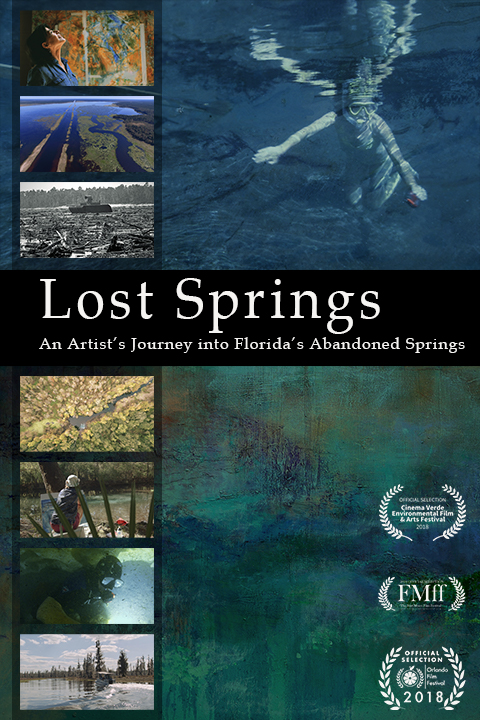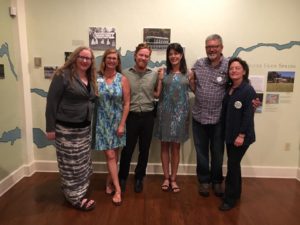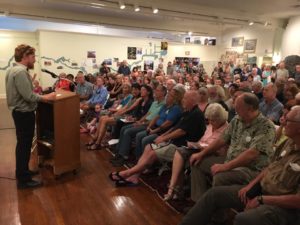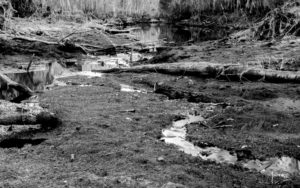An Artist’s Journey into Florida’s Abandoned Springs
Experiencing a landscape scarred and abandoned by government failure, an artist must come to grips with the impending loss of her subject matter: a collection of majestic freshwater springs exposed only for a short time before being smothered and forgotten beneath waters held back by an aging and purposeless dam.
—

Audience Choice – Cinema Verde Environmental Arts & Film Festival, 2018
Official Selection – Fort Myers Film Festival, 2018
Official Selection – Orlando Film Festival, 2018
Lost Springs follows the inimitable artist Margaret Ross Tolbert as she experiences the magic and beauty of a series of freshwater Florida springs forgotten by the state and left to decay behind a nearly fifty-year-old failure of big government spending. Every three or more years, the water behind the Kirkpatrick Dam in north-central Florida is lowered, exposing an environment that is still raw with both tragedy and hope. This lowering of the water known as a ‘drawdown’ allows more than 20 springs to cough back to life for a short few months before the weight of the water comes back and smothers their flow again.
The film explores themes of loss, wonder and experience in nature as Tolbert joins local and regional experts on a boat trip up the long-fabled Ocklawaha River to witness this newly-revealed, transient landscape and to find the lost springs of the Ocklawaha. The film defends the uniqueness of a free-flowing river and its historical, cultural and recreational importance to the state of Florida. It celebrates the wonder of Florida springs through Tolbert’s original paintings of springs seen only during this short period of time every several years and captivates the viewer with a first-ever filmed cave dive by cave-diving experts Mark Long and Tom Morris.
As more is revealed about the springs, Tolbert is forced to deal with the impacts of industry in her own work, where an emotionally-charged and haunting scene leaves audiences with a visceral connection to this place struggling to recover deep in the floodplain forests of Florida.



